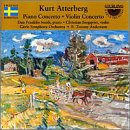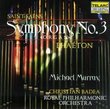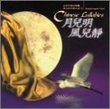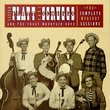Such lovely music
12/21/1999
(5 out of 5 stars)
"I just finished listening once again to this CD. Each time I hear it I find myself falling deeper in love with it. The melodic lines are of such strength and craftmanship. If you like anything by Atterburg, you know what this will sound like. Very romantic, melodic music with strong melodies that shift and pulse with momentum. Great recordings and music that is difficult to stop when it starts playing. I highly recommend it."
Beauty without Pretence
Thomas F. Bertonneau | Oswego, NY United States | 01/10/2001
(4 out of 5 stars)
"Our fin-de-siècle waxes musically nostalgic as the work of a vast range of Romantic and late-Romantic composers emerges from the archives for renewed evaluation. In 1970, one symphony by Joachim Raff, the Fifth, could be found in the record bins; now Marco Polo, Tudor, and ASV between them make all eleven available on CD. In 1970, a few LPs on imported Swedish labels represented the work of Hugo Alfvén; now we enjoy the plenty of two competing cycles of his symphonies in BIS and Naxos. Another Swede of Alfvén's generation, Kurt Atterberg (1887-1974), once cut a rather high profile on the European concert circuit; his Sixth or "Dollar" Symphony in particular had a certain currency and was recorded twice - once by Beecham - between the two world wars. Less prone to pomp than Alfvén, less Wagnerian in his means, Atterberg adhered to a style of gentle Nordic nationalism that suggests in its Swedish context things done by Vaughan Williams in the English context. Sterling, a Swedish classical-music CD-producer has released a disc that couples two concerted works by Atterberg, his Piano Concerto (1927-1935) and his Violin Concerto (1913-1914), with Dan Franklin Smith and Christian Bergqvist as soloists and the Gävle Symphony Orchestra under B. Tommy Andersson. The addition of a solo instrument focuses Atterberg's strengths, allowing him to spin out his beautiful Scandinavian melodies in a rhapsodic mode, with plenty of support from the orchestra, as in the idyllic procession of themes in the First Movement. The Andante of the Piano Concerto in particular shows how fine the result can be, reaching a grand Rachmaninovian climax and subsiding back into the quiet lyricism from which it grows. The Finale has a "Cornish Rhapsody" quality and almost sounds like music from a high-class 1940s filmic love-story. (How is it that Michael Ponti missed this score when he recorded those multi-volume LPs of "The Romantic Piano Concerto" for Vox back in the 1960s?) If we feel the presence of the great Russian composer-pianist in the later keyboard work, we sense the spirit of Dvorák in the earlier concerted score for violin. The First Movement opens with an archly rhetorical passage for solo with spare accompaniment; the movement as a whole is never other than congenial, with luxuriant adjunct-solos from a variety of instruments pairing up with the featured player. (The first horn comes to the fore on more than one occasion.) The middle-movement Adagio Cantabile does indeed "sing," as the designation implies; it amounts to a kind of Swedish lullaby, gentle and sad. The Allegro Molto entails a gamut of large-scale Romantic gestures and makes one or two nods toward the demonic Finale of the Sibelius Concerto. Gävle, one of Sweden's smaller cities (an old Hanseatic town), maintains a fine orchestra, judging by this recording. It sounds somewhat small (especially in its complement of strings) but makes up for its lack of numbers through what we used to call Moxie. (They brew their coffee black and strong in Gävle.) It is hard to imagine anyone with a heart not liking these magnanimous works."


 Track Listings (6) - Disc #1
Track Listings (6) - Disc #1

